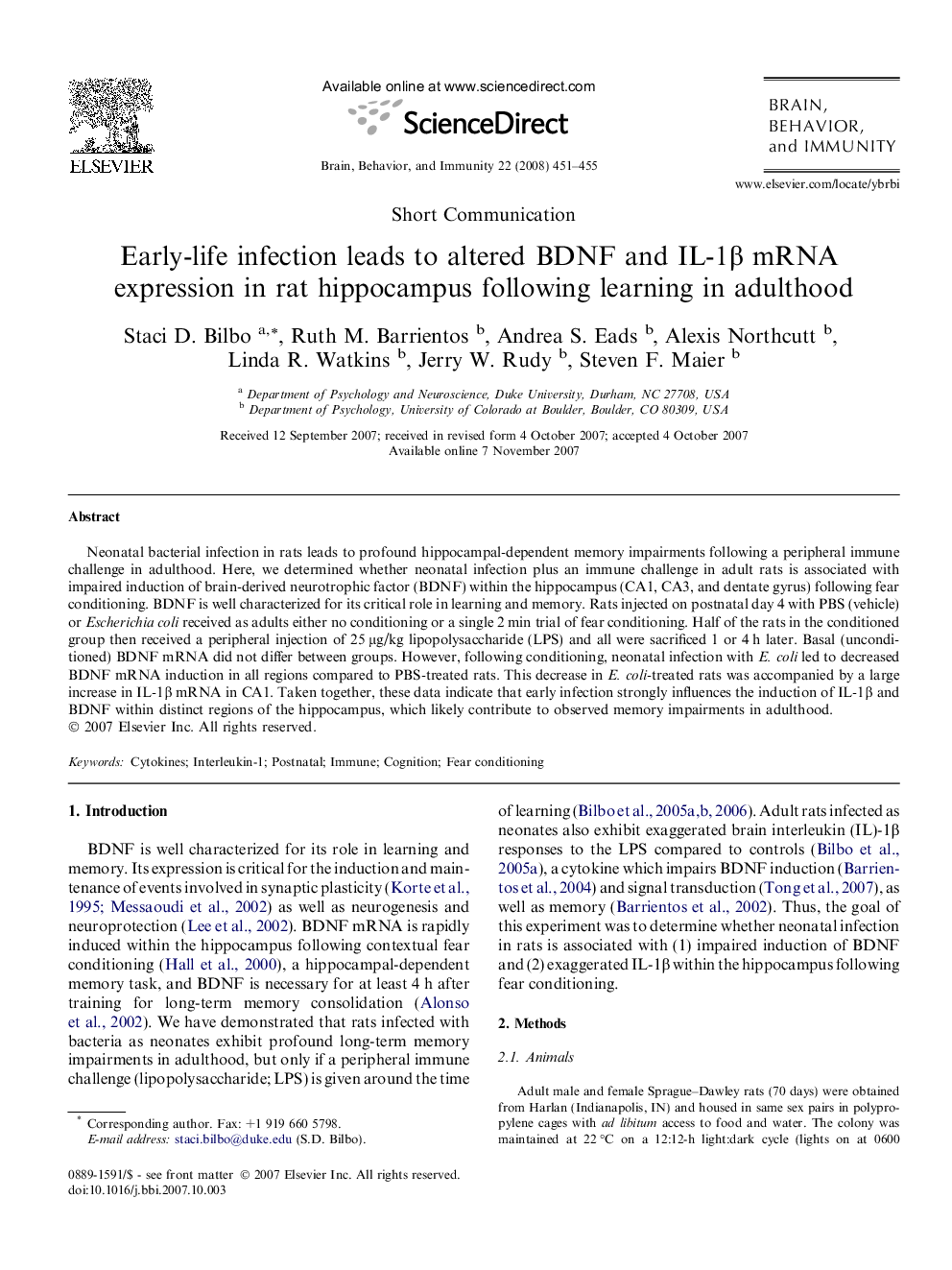| Article ID | Journal | Published Year | Pages | File Type |
|---|---|---|---|---|
| 923132 | Brain, Behavior, and Immunity | 2008 | 5 Pages |
Neonatal bacterial infection in rats leads to profound hippocampal-dependent memory impairments following a peripheral immune challenge in adulthood. Here, we determined whether neonatal infection plus an immune challenge in adult rats is associated with impaired induction of brain-derived neurotrophic factor (BDNF) within the hippocampus (CA1, CA3, and dentate gyrus) following fear conditioning. BDNF is well characterized for its critical role in learning and memory. Rats injected on postnatal day 4 with PBS (vehicle) or Escherichia coli received as adults either no conditioning or a single 2 min trial of fear conditioning. Half of the rats in the conditioned group then received a peripheral injection of 25 μg/kg lipopolysaccharide (LPS) and all were sacrificed 1 or 4 h later. Basal (unconditioned) BDNF mRNA did not differ between groups. However, following conditioning, neonatal infection with E. coli led to decreased BDNF mRNA induction in all regions compared to PBS-treated rats. This decrease in E. coli-treated rats was accompanied by a large increase in IL-1β mRNA in CA1. Taken together, these data indicate that early infection strongly influences the induction of IL-1β and BDNF within distinct regions of the hippocampus, which likely contribute to observed memory impairments in adulthood.
